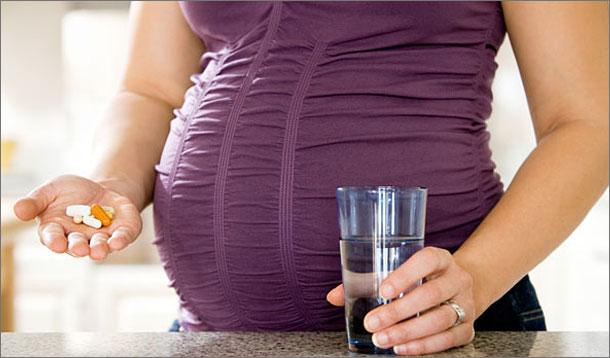
Vivienne Jolie-Pitt is clearly following in her double-barrelled celebrity parent footsteps. In her first gig in film "Maleficient" little miss scored a big fat paycheck. According to an article in the Huffington Post, the 4-year-old daughter of Angelina Jolie and Brad Pitt will star in the Sleeping Beauty spin off and get paid handsomely for the privilege—$3,000 per week with a $60 per diem.
It obviously helps when mom has a leading role (even if it is playing an evil witch) and your siblings also bagged bit parts. Vivienne reportedly plays young Princess Aurora in the highly anticipated film directed by Pirates of the Caribbean's Robert Stromberg. Maleficient is slated for release in March 2014.
Is nepotism alive and well in Hollywood, or could it be that young Jolie-Pitt was blessed with the best of all acting and good looks genes? Is it obscene for a child to make this much dosh?

Moms, how do you feel about your bodies post-baby? Do you embrace your 'battle scars' or pine for your pre-pregnancy shape? Unfortunately, according to a poll of more than 3,000 moms on Today Moms, as many as 31 percent of us hate our bodies after the babies. A third. How sad is that?
“I hate my body after four kids and four C-sections,” said Liz Capra Whitby in the article. “No time or energy to do anything about it, and I'm so sick of people saying ‘make time’ or ‘prioritize.' That's just not reality. I love my kids, hate my body.”
Our body worries include fearing that our partners don't like our new and not-so-improved physiques, not to mention the Hollywood moms who bounce back quicker than you can personal trainer.
“We live in a culture of judgment, and a culture that really expects women to be perfect and have perfect bodies no matter what else you have going on in your life,” says the founder of CT Working Moms blog, Michelle Noehren.
“Sometimes I just wish I could put those pants [I had before pregnancy] on and wear them to work and feel comfortable again," laments Noehren. "My husband tells me I’m beautiful all the time, but sometimes I worry that I’m not as attractive to him as I used to be.”
When she’s got the body blues, toddler mom Noehren reminds herself that her "successes in life, how hard she’s worked, and how she treats people with kindness" trump her physical appearance. She's also conscious of her daughter inheriting her mother's body image hang ups.
Not surprisingly, the tummy is the trouble spot. More than half of us loathe the damn muffin top. But when you consider what that part of your body went through for the best part of a year, it's kind of amazing that it reverts at all.
Sad but so. Most of us are divided when given the choice between a perfect baby or perfect body for a month. While two-thirds of us would eschew the "super-romantic gift" from hubby in favour of dropping five pounds.
Are you proud of your child-bearing bod or wallowing in pre-baby nostalgia?

With autism rates climbing at a terrifying rate, parents are desperate to find a conclusive cause, or at least a preventative measure. Now researchers believe they have stumbled upon the latter.
According to an article in Huffington Post, a small Norwegian study has found that folic acid taken in the earliest stages of pregnancy may lower a child's risk of autism by nearly 40 percent.
"This is a relatively inexpensive way that parents can take action to possibly prevent risk of tube birth defects and autism," said senior director for environmental and clinical Sciences for the advocacy group Autism Speaks, Alycia Halladay.
In the latest study, published online in the Journal of the American Medical Association, researchers examined the effect 200-400mg of folic acid taken from one month prior to pregnancy to two months after had on 85,000 children born in Norway between 2002 and 2008.
The result: moms who took the supplement ended up with 39 percent decreased odds of having a child with autism. Though the research doesn't set up a causal relationship between the vitamin and the developmental disorder, the authors of the study claim folic acid may well have a "protective effect" against autism since it is "critical to the synthesis of DNA."
"We do not know how other dosages would have affected the risk of autism, or whether it matters if folic acid is taken as single tablets or as part of a prenatal multivitamin supplement," said Pal Suren of the Norwegian Institute of Public Health.
Interestingly, there was no such link established between women who took fish oils during pregnancy and autism incidence.
Folic acid is not new. Since the early 1990s, health agencies have recommended the prenatal supplement to ward against neural tube and birth defects such as spina bifida and anencephaly.
Still, researchers warn that the vitamin isn't a "magic pill." The fact that more women have been taking the supplement in recent years has done little to stymie the incidence of autism—now estimated at 1 in 88 children in the U.S. Autism stems from a complex mix of genetic and environmental factors, so the odds of there being a simple, singular cause and effect are slim to none.
I can say hand on heart that I did take folic acid faithfully throughout my pregnancy to no avail. But who know? Maybe without the supplement, my son would be more severely impaired than he is today. If simply popping a vitamin helps lowers your risk, then it's surely worth it.